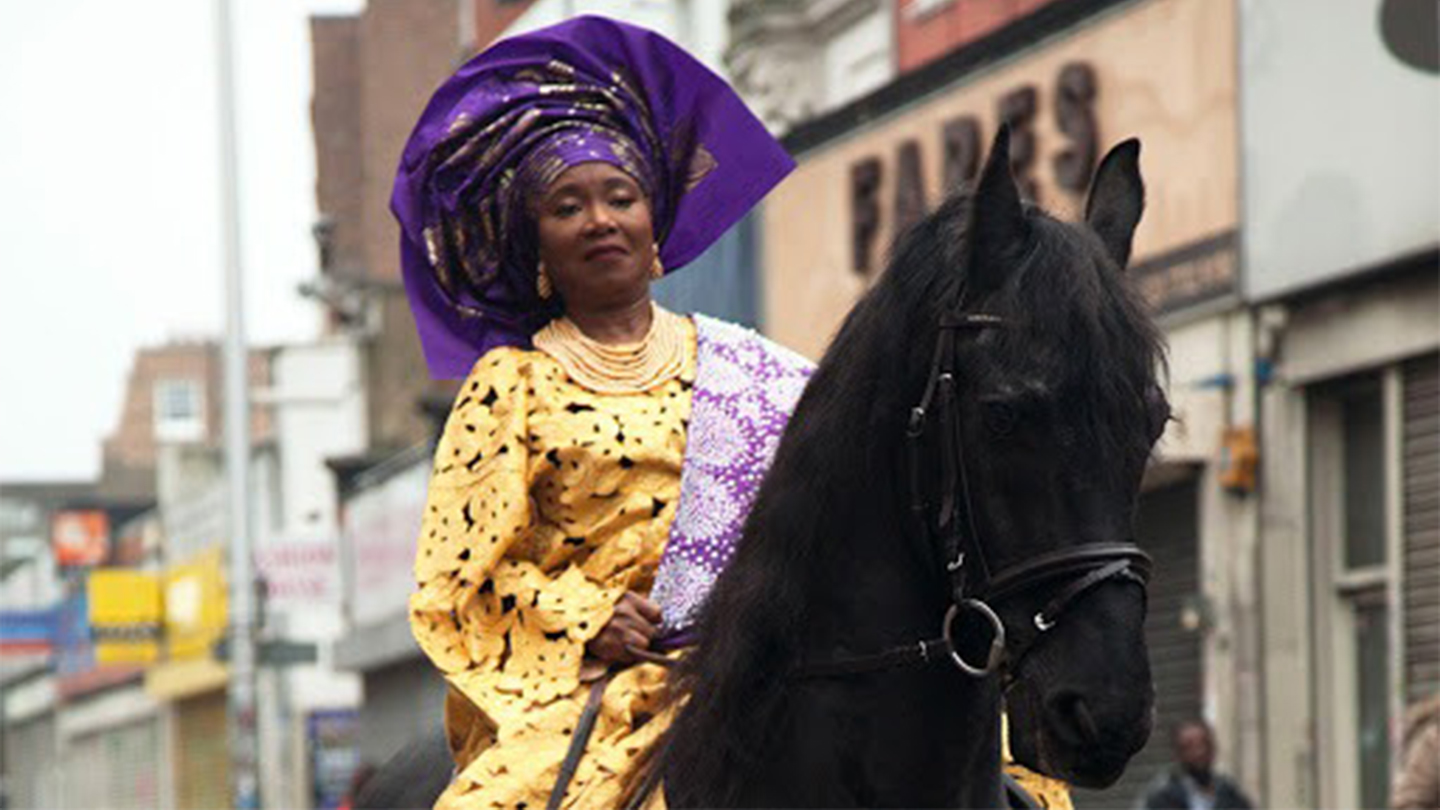For many Black Brits, our experience seeing ourselves on screen is seen predominately through the lens of the African American diaspora. Many of us would eagerly sit down and passionately recite lines from classic movies like Menace II Society and Love and Basketball and would relish in the teen drama, laughs and crushes that Moesha and Tia and Tamera got themselves into each week. But, while these shows and films spoke to us — from the family dynamics they depicted to the issues they tackled which are synonymous with Black communities worldwide — there was still a slight disconnect. Stories which focused on the Black British diaspora were not being told and, while things are improving, this same lack of visibility still exists.
According to 2019 Ofcom figures on diversity in the UK TV industry, the representation of people from minority ethnic backgrounds stands at a paltry 13% across the industry as a whole. This is perhaps unsurprising given the industry remains disappointingly white dominated — analysis by Dr Clive Nwonka within the Department of Sociology at the London School of Economics and Political Science (LSE) found that Britain’s Black and ethnic minority population remain excluded from key areas of the industry.
Alongside this limited representation, there’s a problem that the stories which do get told largely focus on pain and trauma. A need to celebrate Black joy and in particular, Black British joy is at an all-time high. To this end, Netflix has launched Black British Stories, a collection of 20 films, series and shorts which spotlight and celebrate Black British creatives and the myriad and complex experiences that make up Black British identity.
“The collection is about quality, not quantity and so every title has its place,” says filmmaker and curator of the collection, Adeyemi Michael. “I’m really gassed about being alongside people that I’m looking at and I feel emboldened by this move that Netflix has taken and asked me to spearhead with them.”
Nigerian-born Adeyemi grew up in Peckham and developed an interest in filmmaking from the strong community that surrounded him. “My perception of my Africanness and Blackness was really built around the stories I encountered and the experience of what it means to be seen,” he says. “I just wanted to tell those stories of people who were in my community, my family and my close networks and reflect what I understood and what I saw rather than anything else.”
Creating the collection, then, was a collaborative effort between Netflix and Adeyemi himself, a labour of love to present both new and established Black Britis talent. “I suggested a long list and they went to try and get the films and they also threw some titles back at me,” he says. One of the prerequisites for the search was to focus on films that honoured Black British life and strayed away from trauma. “The first thing we spoke about was the strength and trauma narratives that have been played out about us and our community and just focusing on joy, and happiness,” he reiterates. “That stuff exists and even if we are showing stories where there is a level of trauma, you can see the level of storytelling is at a high standard for you to not be seduced by the trauma which can be the case a lot of the time.”
Within the collection are a variety of stories which give a detailed look at the Black British experience in all its variations and iterations. There’s Theresa Ikoko’s heartfelt coming of age film Rocks, a story that celebrates Black youth and girlhood friendships, Remi Weekes critically acclaimed thriller His House, and Peckham’s favourite barbershop Desmond’s — an old school game-changer in Black British representation on screen.
“Desmond’s is great because there’s a level of nostalgia for those who can remember it,” says Adeyemi. The show, which ran for 71 episodes and followed the story of a barbershop owned by a charismatic British-Guyanese family in south London, was Britain’s first original Black sitcom and it’s most successful. “You can’t look at Desmond’s and not think about how important it is,” the filmmaker says. “It reiterates the point that our stories have reach and they’ve always had reach.”
The content of this collection — which also includes Michaela Coel’s Chewing Gum and Amma Asante’s A United Kingdom — just drives home the importance of Black creatives narrating their own stories and the need for better support within the industry to do so. “We need greater accessibility, not only to the industry but to the stories that are given the opportunity to be made as features,” says Adeyemi. “Often they’ll say ‘oh we can’t make that because that’s not commercial enough’. That’s why its important to find one place where we can just curate that.”
With Black British Stories launching during Black History Month, amidst the ongoing socio-political unrest and struggles of the Black Lives Matter movement, the collection is all the more poignant — but also, as Adeyemi mentions, a signifier of a new structure for Black creatives. “This collection coming out now does add a bit of weight with everything going on, and I’m excited that this is happening now because in a way we’re using this as a springboard to step into this new world - a world in which we want these type of titles to be shown and told.” And while the releases are being celebrated amidst Black History Month, Adeyemi says it’s a “growing collection” which will continue to evolve and further proves Netflix’s commitment to supporting Black British storytellers.
“There is so much stuff out there. The good thing is that this is going to be a living collection and we’re going to continue to add to it so it will grow. This is just the start,” he says. “I hope people see themselves, feel represented, and look forward to being seen even more.”
Black British Stories is available on Netflix UK now


